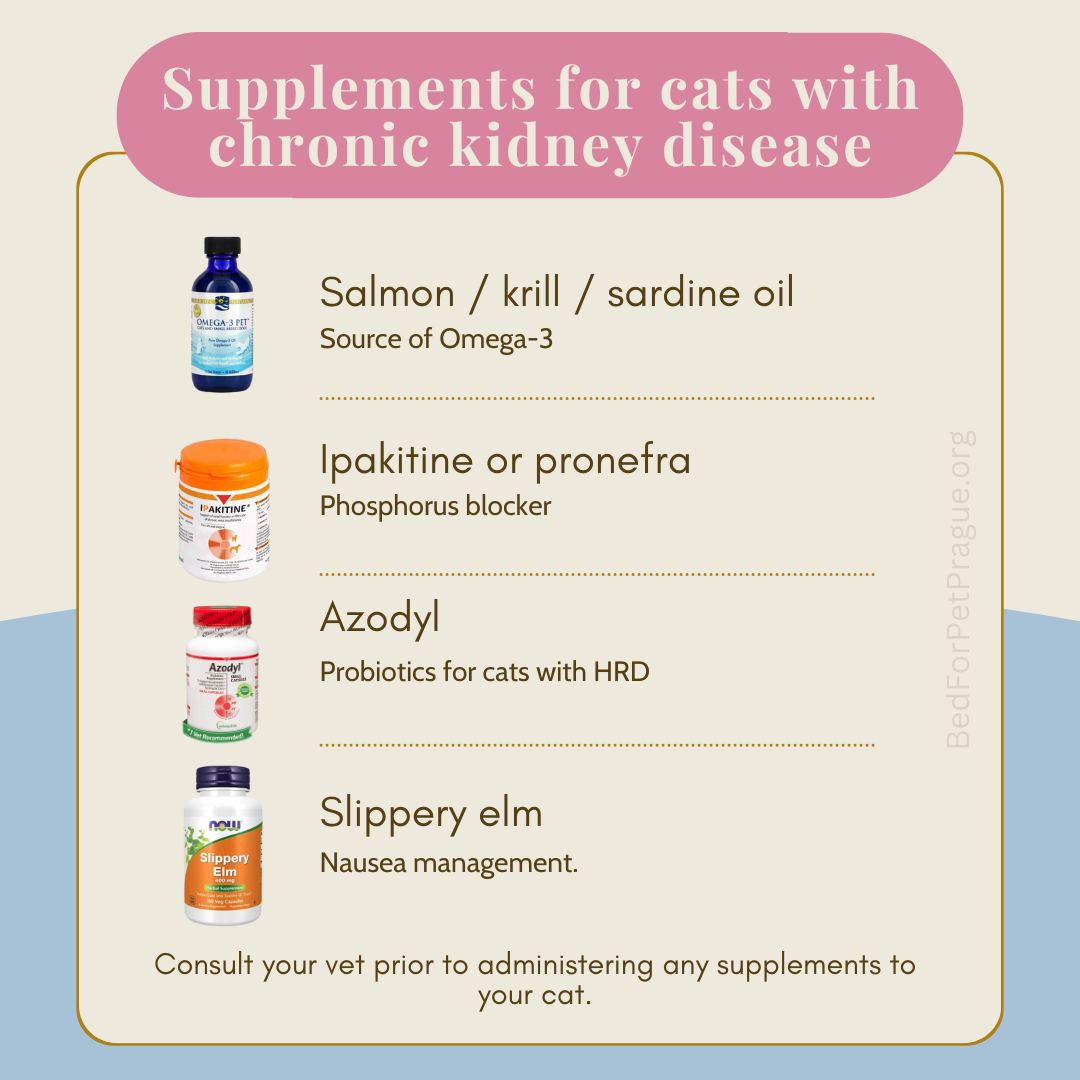Kidney disease is a common health issue among cats, particularly as they age. Providing proper nutrition is crucial in managing the condition and improving the overall well-being of your feline companion. This article aims to shed light on the importance of diet and supplements in supporting cats with kidney disease, offering simple yet effective tips to ensure their optimal health.
Understanding Kidney Disease in Cats
The kidneys play a vital role in filtering waste products and maintaining fluid balance in a cat's body. When kidney disease occurs, the kidneys' ability to function properly is compromised, leading to a buildup of toxins and imbalances in essential minerals. As a result, cats with kidney disease often experience weight loss, increased thirst, frequent urination, and a decline in overall energy levels.

The Role of Diet in Kidney Disease Management
A well-balanced and tailored diet can significantly impact a cat's overall health and help manage kidney disease effectively. Here are some key considerations:
Supplements for Kidney Health: In addition to a kidney-friendly diet, certain supplements can provide added support for cats with kidney disease. Always consult your veterinarian before introducing any supplements. Here are some commonly recommended options:
- Low Phosphorus Content: High levels of phosphorus can burden the kidneys. Look for cat foods specifically formulated for kidney disease, which are low in phosphorus. These foods typically contain high-quality proteins that are more easily digested.
- High-Quality Proteins: Cats require protein for muscle maintenance and repair. Opt for easily digestible, high-quality protein sources such as lean meats (chicken, turkey) or fish (salmon, tuna). Avoid foods with excessive amounts of low-quality fillers or by-products.
- Controlled Sodium Levels: Excessive sodium intake can lead to fluid retention and increased blood pressure. Choose cat foods with controlled sodium levels to maintain a healthy balance.
- Moisture-Rich Diet: Cats with kidney disease are prone to dehydration due to increased urination. Encourage water intake by providing wet or canned foods, which have higher moisture content than dry kibble. This helps support proper hydration and kidney function.
Supplements for Kidney Health: In addition to a kidney-friendly diet, certain supplements can provide added support for cats with kidney disease. Always consult your veterinarian before introducing any supplements. Here are some commonly recommended options:
- Omega-3 Fatty Acids: These essential fatty acids have anti-inflammatory properties and can help reduce kidney inflammation. Fish oil supplements, specifically formulated for cats, are a good source of omega-3s. Omega-3 supplements may cause adverse reactions, therefore it is important to estimate the risks and benefits before adding them to a cat’s diet.
- B Vitamins: Cats with kidney disease may have reduced levels of B vitamins due to increased urination. B-complex vitamin supplements can help replenish these nutrients and support overall well-being.
- Antioxidants: Antioxidants, such as vitamin E and vitamin C, can help protect the kidneys from oxidative damage. Consult your veterinarian for appropriate antioxidant supplements and proper dosage.
- Probiotics: Kidney disease can disrupt the balance of beneficial gut bacteria. Probiotic supplements aid in maintaining a healthy gut and supporting digestion and nutrient absorption.

Monitoring and Veterinary Care
Regular veterinary check-ups and monitoring are essential for cats with kidney disease. Your vet will perform blood tests to assess kidney function and make necessary adjustments to the diet or medication as needed. Remember to inform your veterinarian about any dietary changes or supplements you have incorporated into your cat's routine.
Caring for a cat with kidney disease involves a holistic approach that includes a kidney-friendly diet, proper hydration, and supplements tailored to support kidney health. By providing a balanced and nutritious diet, you can help manage the condition, improve your feline friend's quality of life, and ensure they enjoy many happy and healthy years ahead. Remember, always consult your veterinarian for personalized advice and guidance on your cat's specific needs.
Caring for a cat with kidney disease involves a holistic approach that includes a kidney-friendly diet, proper hydration, and supplements tailored to support kidney health. By providing a balanced and nutritious diet, you can help manage the condition, improve your feline friend's quality of life, and ensure they enjoy many happy and healthy years ahead. Remember, always consult your veterinarian for personalized advice and guidance on your cat's specific needs.
All the information on this website is published in good faith and for general information purpose only. BedForPetPrague.org does not make any warranties about the completeness, reliability and accuracy of this information. Any action you take upon the information you find on this website (BedForPetPrague.org), is strictly at your own risk, BedForPetPrague.org will not be liable for any losses and/or damages in connection with the use of our website.

